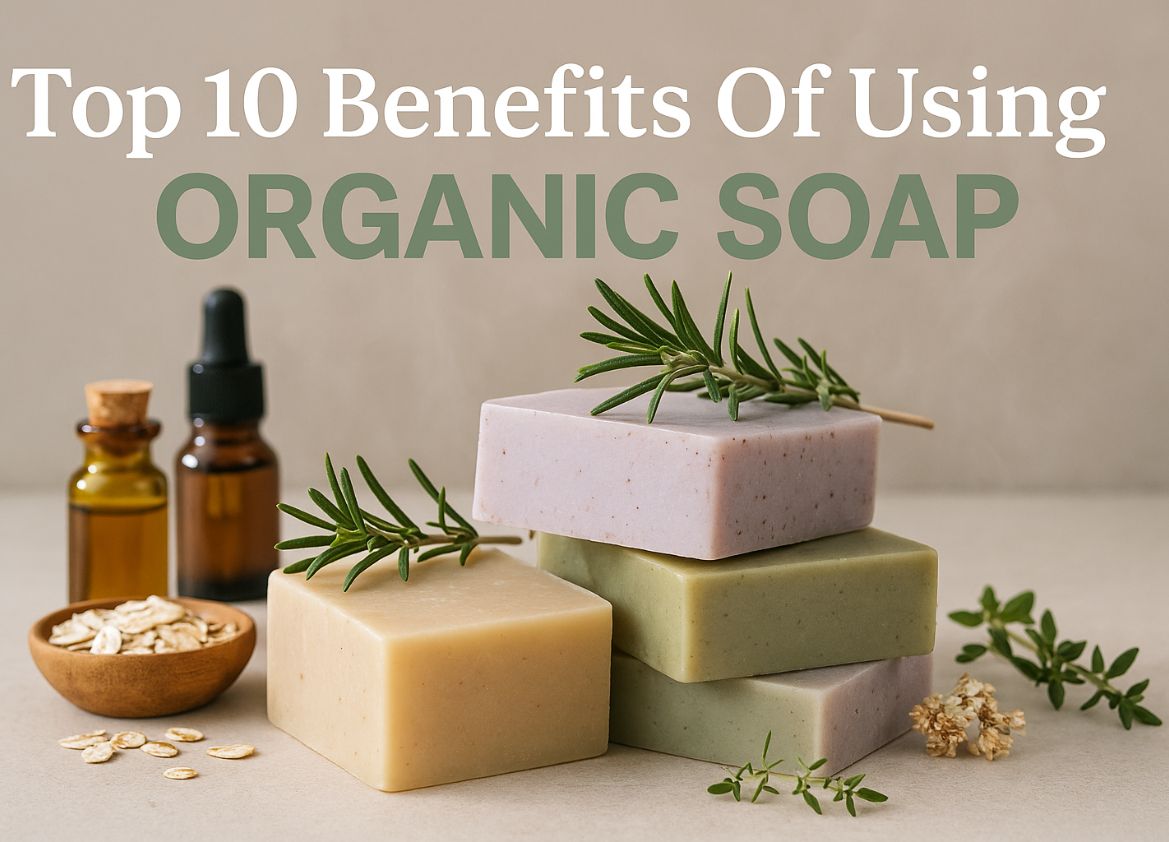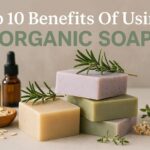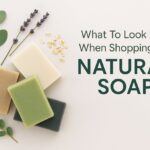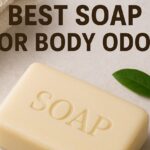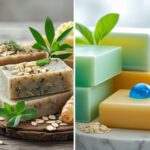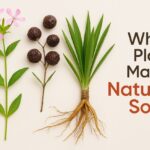The Top 10 Benefits of Using Organic Soap go far beyond just cleansing your skin. If you’re still using conventional soap loaded with harsh chemicals, you’re missing out on a game-changing switch that could transform your skin health forever.
Here’s the deal: organic soap isn’t just a trendy buzzword. It’s made with natural oils, herbs, essential oils, and zero harmful chemicals that strip your skin of its natural moisture. While conventional soaps contain sulfates, parabens, and synthetic fragrances that can irritate and damage your skin over time, organic alternatives work with your skin’s natural biology.
The shift toward natural soap and chemical-free soap isn’t just happening because people want to feel good about their choices. It’s happening because results speak louder than marketing claims. When you switch to eco-friendly soap and skin-friendly cleansers, your skin responds immediately and the benefits compound over time.
Ready to discover why handmade soap could be the best investment you make for your skin this year? Let’s dive into the science-backed benefits that’ll make you wonder why you waited so long to make the switch.
Key Takeaways
Gentle on Sensitive Skin – Made without sulfates, parabens, or artificial fragrances that can trigger irritation.
Nutrient-Rich Formula – Powered by plant oils and essential oils packed with vitamins, antioxidants, and natural moisturizers.
Eco-Friendly & Biodegradable – Safe for both your skin and the planet, free from harsh chemicals.
Naturally Hydrating – Retains glycerin to lock in moisture, unlike commercial soaps that strip skin dry.
Aromatherapy Benefits – Infused with essential oils to uplift mood and support overall well-being.
Top 10 Benefits of Using Organic Soap
1. Gentle on Sensitive Skin
If your skin reacts to everything, organic soap could be your salvation. No harsh sulfates, parabens, or artificial fragrances means no more burning, itching, or redness after washing.
Here’s what makes the difference: conventional soaps use sodium lauryl sulfate (SLS) to create that foamy lather you think means “clean.” But SLS strips your skin’s natural protective barrier, leaving it vulnerable and irritated.
Organic soap works differently. It cleanses without destroying your skin’s natural pH balance. For people dealing with eczema, psoriasis, or acne-prone skin, this gentle approach can mean the difference between constant flare-ups and clear, comfortable skin.
I’ve seen clients make this switch and watch their chronic skin issues improve within weeks. The key? Your skin finally gets a break from the chemical assault it’s been enduring daily.
2. Made with Natural Ingredients
Plant oils, essential oils, and herbs aren’t just feel-good additions—they’re powerhouse ingredients that deliver real results.
Think olive oil, coconut oil, shea butter, and essential oils like tea tree or lavender. These ingredients are rich in vitamins and antioxidants that actually nourish your skin while cleansing it.
Compare that to conventional soap ingredients you can’t even pronounce. Which would you rather absorb through your largest organ? Natural ingredients work synergistically with your skin’s biology, not against it.
3. Free from Toxic Chemicals
This one’s huge. No synthetic detergents means no long-term exposure to chemicals that could be disrupting your hormones or causing cellular damage.
Conventional soaps often contain:
- Triclosan (linked to hormone disruption)
- Phthalates (potential reproductive toxins)
- Formaldehyde (known carcinogen)
- Synthetic colors and fragrances
Organic soap eliminates these risks entirely. Safer for long-term use isn’t just marketing speak it’s a health investment that pays dividends over decades.
4. Eco-Friendly and Biodegradable
Your soap choice impacts more than just your skin. Doesn’t pollute water systems when you rinse it down the drain.
Conventional soaps contain chemicals that persist in waterways, harming aquatic life and contaminating drinking water sources. Organic soap breaks down naturally without leaving toxic residues.
Plus, sustainable ingredients and packaging mean you’re supporting regenerative agriculture and reducing plastic waste. Win-win for you and the planet.
5. Moisturizes Instead of Drying
Here’s where organic soap completely flips the script. Glycerin retained during the soap-making process means your skin gets moisturized while being cleaned.
Commercial soap manufacturers remove glycerin to sell it separately in lotions and moisturizers. Smart business move for them, terrible for your skin.
Organic soap keeps the glycerin where it belongs—in your soap. Result? Leaves skin hydrated and soft instead of tight and dry. You might even find you need less moisturizer overall.
6. Rich in Antioxidants
Helps fight free radicals that cause premature aging and skin damage. Natural ingredients like vitamin E, green tea extracts, and plant oils deliver antioxidants directly to your skin.
This means organic soap doesn’t just clean—it actively slows down signs of aging while you wash. Compare that to conventional soaps that might actually accelerate aging through chemical damage and excessive drying.
7. Cruelty-Free and Vegan Options
Many organic soaps are not tested on animals, and plenty offer plant-based alternatives to animal-derived ingredients like tallow or lanolin.
If ethical consumption matters to you, organic soap aligns your daily routine with your values. You’re not supporting industries that harm animals while taking care of your skin.
8. Aromatherapy Benefits
Essential oils like lavender, peppermint, and eucalyptus promote relaxation and mental wellness. Your daily shower becomes a mini spa experience.
Natural scents vs. artificial perfumes means you get mood-boosting benefits without the headaches, allergic reactions, or hormone disruption that synthetic fragrances can cause.
9. Supports Local & Handmade Businesses
Many organic soaps are artisan-made by small businesses that care about quality over mass production. Your purchase supports local economies and sustainable business practices.
Promotes ethical and sustainable shopping while getting a superior product. It’s conscious capitalism at its finest.
10. Better Overall Health & Wellbeing
Reduces skin irritation and allergies while promoting a chemical-free lifestyle that benefits your entire body.
When you eliminate toxic exposures from daily routines, your body’s natural detoxification systems work more efficiently. Less toxic load means more energy for healing, immunity, and optimal function.
Organic Soap vs Conventional Soap
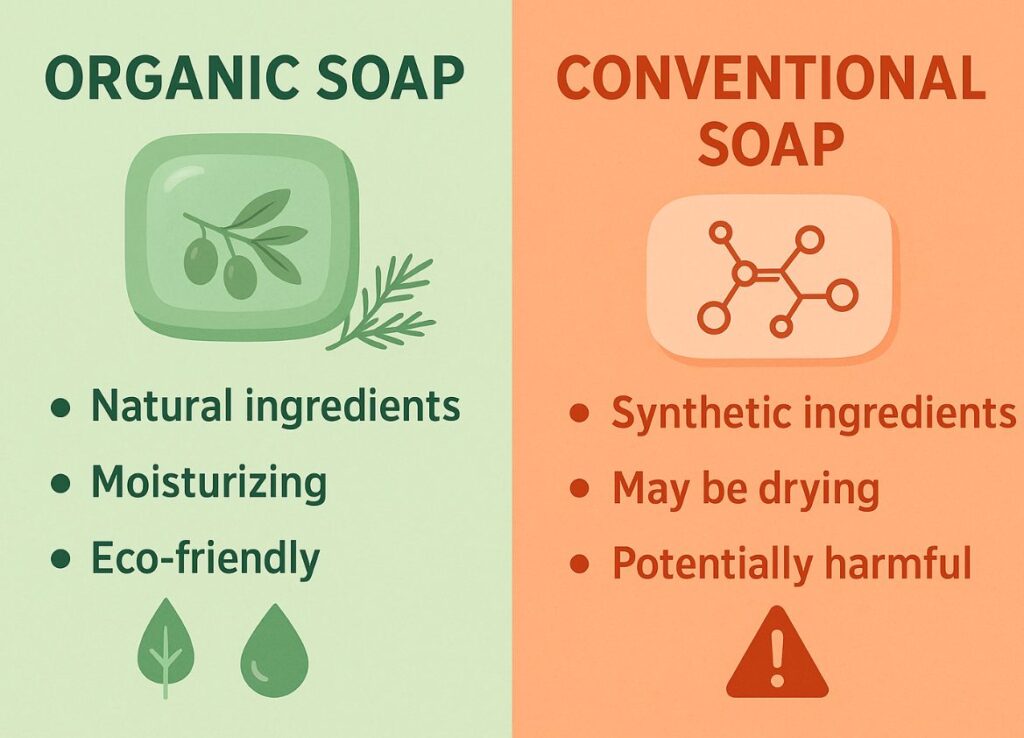
| Factor | Organic Soap | Conventional Soap |
|---|---|---|
| Ingredients | Natural oils, herbs, essential oils | Synthetic detergents, sulfates, parabens |
| Skin Impact | Moisturizing, gentle, pH-balanced | Drying, potentially irritating |
| Environmental Effect | Biodegradable, eco-friendly | May contain pollutants, plastic packaging |
| Health Concerns | Minimal chemical exposure | Potential hormone disruptors, allergens |
| Cost | Higher upfront, lasts longer | Lower cost, may require additional moisturizers |
| Effectiveness | Cleanses while nourishing | Cleanses but strips natural oils |
How to Choose the Best Organic Soap for Your Skin
Read ingredient labels like your skin health depends on it. Look for short ingredient lists with recognizable plant-based components.
Avoid artificial additives even in products labeled “natural.” Marketing can be misleading, but ingredients don’t lie.
Choose certified organic when possible. Look for trusted certifications like:
- USDA Organic (95% or more organic ingredients)
- Ecocert (European organic certification)
- COSMOS (international organic cosmetics standard)
Match your soap to your skin type:
- Dry skin: Look for moisturizing oils like shea butter or avocado oil
- Oily skin: Tea tree or charcoal-based soaps
- Sensitive skin: Unscented or mild essential oil formulations
- Mature skin: Antioxidant-rich ingredients like green tea or vitamin E
FAQs About Organic Soap
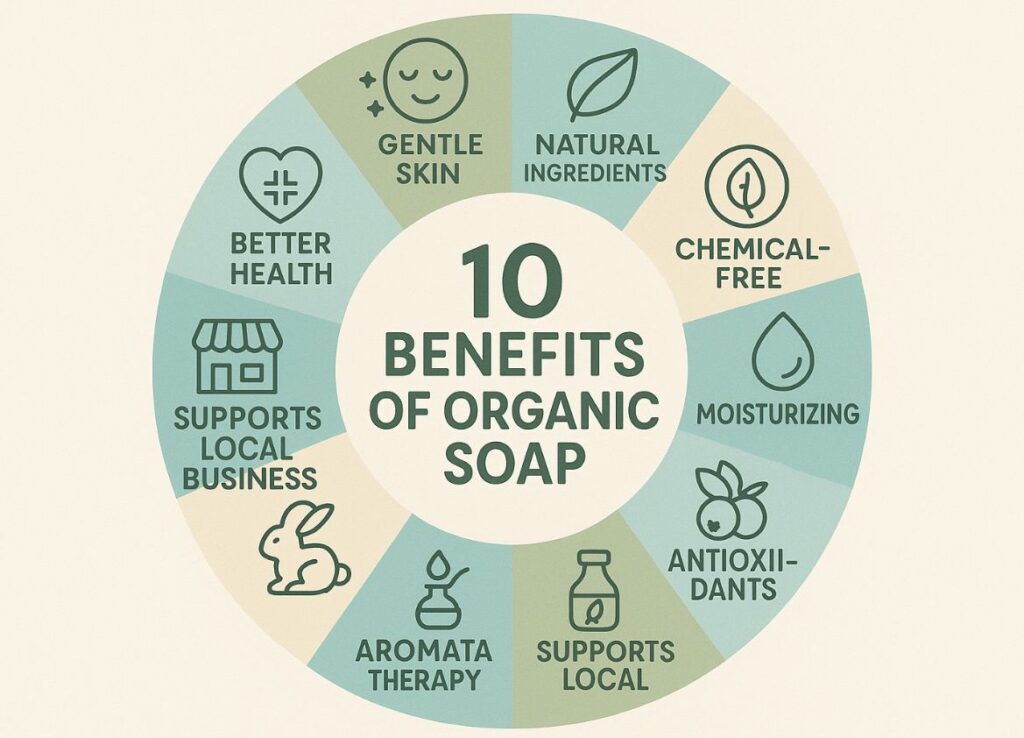
Q1: Is organic soap better for acne?
Yes, especially for sensitive or chemically-reactive skin. Organic soap won’t clog pores with synthetic ingredients, and natural antibacterial oils like tea tree can help fight acne-causing bacteria without over-drying.
Q2: Does organic soap last as long as regular soap?
Often longer! Handmade organic soaps are typically denser and don’t dissolve as quickly as mass-produced bars. The higher concentration of oils means you need less product per use.
Q3: Can I use organic soap daily?
Absolutely. The gentle, pH balanced formulation makes organic soap ideal for daily use. Unlike harsh conventional soaps, it won’t disrupt your skin’s natural barrier with regular use.
Q4: What skin types benefit most from organic soap?
All skin types benefit, but sensitive, dry, and problem skin see the most dramatic improvements. If you have eczema, psoriasis, allergies, or chronic dryness, organic soap could be life-changing.
Conclusion
The Top 10 Benefits of Using Organic Soap prove why it’s a healthier, eco-friendly, and skin-nourishing choice that delivers results conventional soaps simply can’t match.
From gentle cleansing that protects sensitive skin to environmental benefits that extend far beyond your bathroom, organic soap represents a simple switch with compound benefits. Your skin gets the nourishment it craves, your health gets protection from toxic chemicals, and the planet gets a break from pollutants.
Ready to make the switch? Start by replacing your current soap with one certified organic option. Pay attention to how your skin feels after just one week. I guarantee you’ll notice the difference and wonder why you waited so long to prioritize your skin health.
Your skin is your largest organ and your first line of defense against the world. Treat it with the respect it deserves by choosing organic soap that works with your biology, not against it.
The investment in organic soap pays dividends in skin health, reduced irritation, and peace of mind knowing you’re making choices that benefit both your body and the environment. Make 2025 the year you finally give your skin what it’s been craving.

